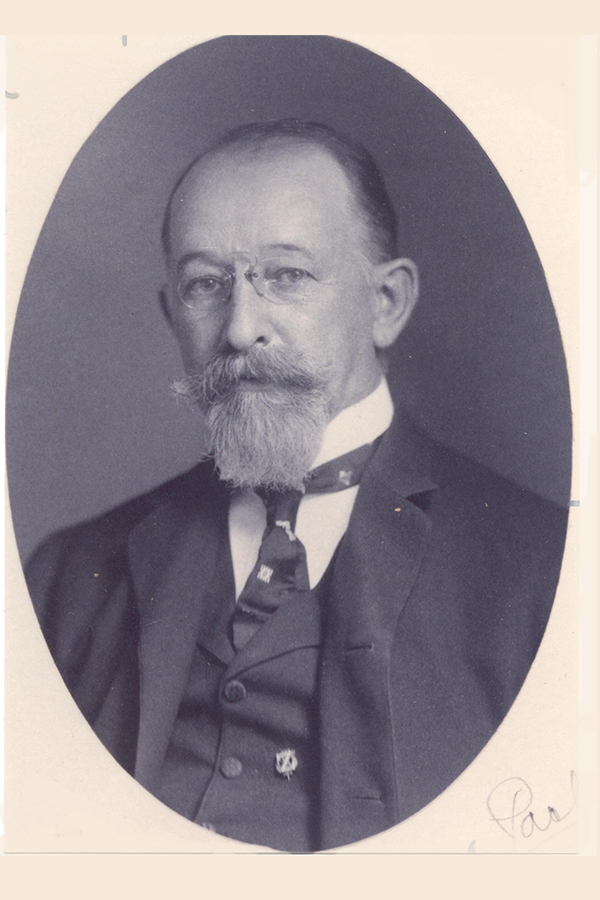George S. Armstrong
George S. Armstrong, Phi, 1908, Phi Alpha 1937-1938
George Simpson Armstrong, Phi, 1908, was a pioneer in the field of management consulting. After graduating from New York University, he completed graduate degrees in civil and mechanical engineering.
 Brother Armstrong had a long and varied professional career. He began his career with
Brother Armstrong had a long and varied professional career. He began his career with
Thompson, Starrett Construction Company and later served as a supervising engineering consultant with the accounting firm of Miller, Franklin, Bassett & Company (which was “revolutionary” by putting “accountants and engineers on its letterhead). From 1921 to 1932, Brother Armstrong was a vice president in charge of industrial investigations at National City Bank (now CitiBank) focused on the changes mandated by the Glass-Steagall Act. During this time, Armstrong and his team conducted studies of the bank’s troubled loan to Saco-Lowell Shops, of the proposed merger of Palmolive, Kraft and Hersey and at J.C. Penny’s request a comparative study of the Penny chain stores and their relative expense ratios. In 1933, anticipating Franklin D. Roosevelt requiring commercial and investment banks to be separate, he founded his own firm,
George S. Armstrong & Company to provide independent management consulting. His
firm grew rapidly serving clients such as Philip Morris, Jones & Laughlin, Birdseye Frozen Foods and Seagram’s.
During World War II, Armstrong served as chairman of the Engineers Advisory
Committee of the Federal Office of Product Management. In 1942, he testified to the
U.S. Senate Committee on Banking and Currency on the feasibility of converting small
businesses to war production.
Brother Armstrong was president of both the American Institute of Consulting Engineers
and the Association of Consulting Management Engineers. He was the second alumni
member of the NYU governing Council and in 1949 received the NYU Alumni
Meritorious Service Award.
As Phi Alpha, he oversaw and fraternity through difficult financial times because of the
depression and was involved in the organization of the Alpha Mu chapter at Dalhousie
University, which was chartered in January 1939. He was awarded Zeta Psi’s highest honor, the Distinguished Service Award in 1960 at the annual convention, held that year in New York City at the Henry Hudson Hotel.
Just prior to his death in 1962, Brother Armstrong authored and published An Engineer
on Wall Street.
